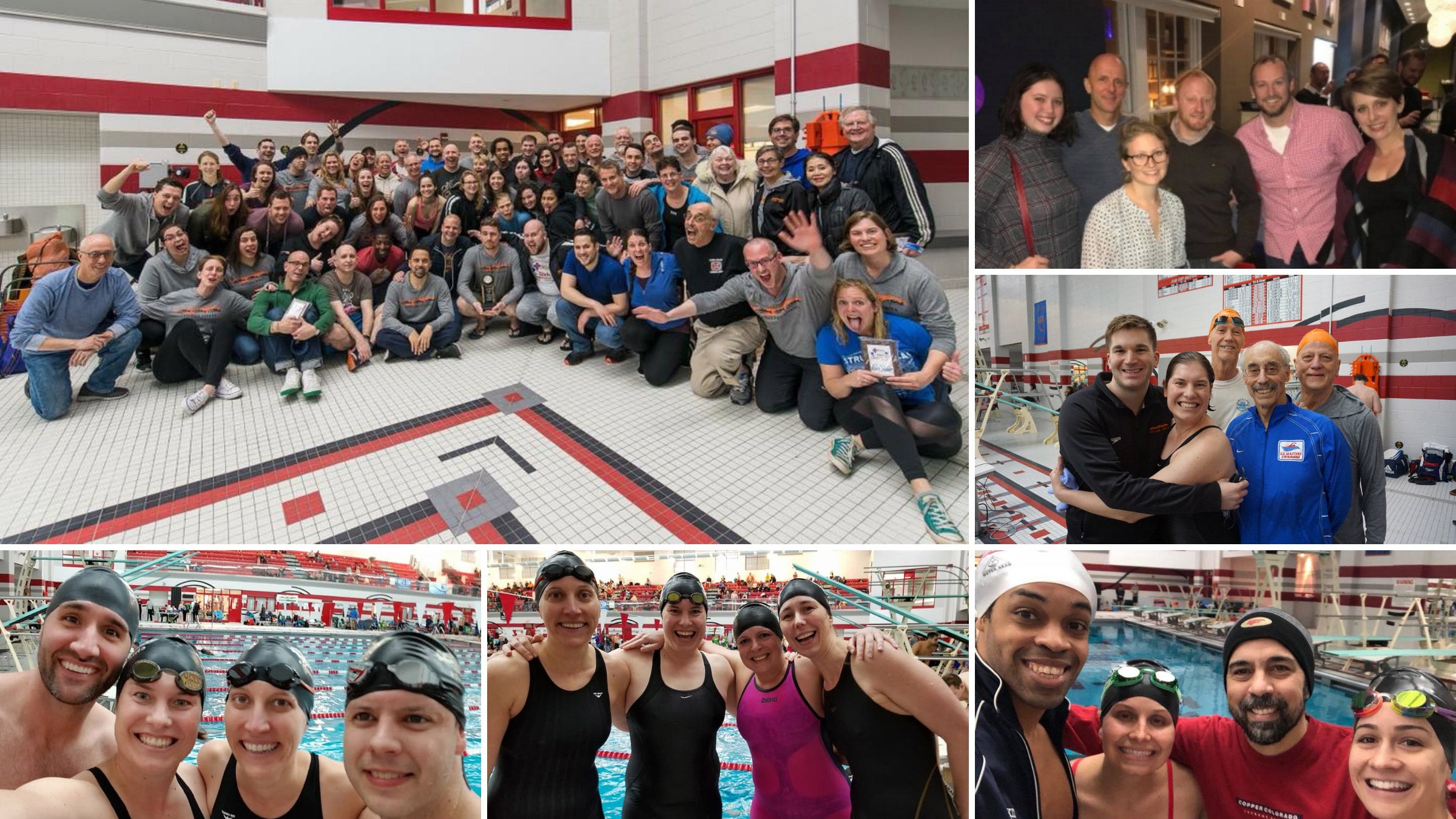Club Hub: The Chicago Smelts

In 1986, during the height of the AIDS crisis, the Chicago Tribune published an advice column containing a letter from a “Concerned Parent,” outlining a fear of catching AIDS from a swimming pool:
I have heard that the AIDS virus can be found in bodily secretions. This includes tears, perspiration, urine, saliva, etc. Well, when people swim, they open and close their mouths, so a swimmer with AIDS would be mixing his saliva with the pool water, right?
I had planned to take parent-tot swimming lessons with my infant daughter at a public pool, and now I am concerned for her health and safety.
Though the Centers for Disease Control had clearly stated HIV, the virus that causes AIDS, cannot be transmitted via swimming pool, misinformation continued to spread, causing a parallel epidemic of homophobia. “City Pool Closed After Swim By AIDS Victim” was an unsurprising headline at that time, and discrimination against the lesbian, gay, bisexual, and transgender community was the norm. To cope with the overwhelming fear, anger, and grief of the 1980s, swimmers Mark Schoofs, Mike McGuire, and Damon Mackert formed a swimming club in Chicago. Their dream was to give the LGBT community a safe place to exercise for physical, mental, and social health.
But as they lobbied the Chicago Park District for dedicated pool time, they were met with resistance. Undeterred, the group met up surreptitiously at Eckhart Park on Chicago Avenue for months, finding support in between sets. When a member mentioned that Gill Park in the Chicago’s Boystown neighborhood had a Masters Swim Team with only one member, the founders approached that sole swimmer with a proposition: Could their crew join him?
The member, Ross Patronsky, welcomed the club with open arms. This set off the residency of the Chicago Smelts, Chicago’s first organized gay and lesbian swim club. The name, an acronym for Sensitive Men et Lesbians Together Swimming, is a cheeky nod the club’s membership. It was important for team members to be out and proud and to participate in the team as openly gay members, shattering stereotypes and serving as ambassadors for the LGBT community both in and out of the pool.
“One of the team’s first swim meets was the Evanston Masters meet in December of 1988, with five intrepid Smelts signing up to take the plunge,” said Patronsky. “That was also the first year the team marched as the Chicago Smelts in the Gay Pride Parade, and this has been a yearly tradition ever since.”
Throughout the early years of the team’s, members had to remain staunch advocates to ensure continued pool time and a presence at Gill Park, including attending advisory council meetings, running for council leadership positions, and meeting with the city Alderman. This active attitude and approach also guided out-of-pool efforts, whether it was team activism, fundraising for AIDS and community organizations, or socializing at restaurants and homes.
More than 30 years later, the Smelts total more than 70 members, welcoming swimmers of every skill level, gender identity, and sexual orientation, including gay-friendly straight swimmers. During swim season, the team competes at Masters swim meets around the country, participates in the Gay Games (a worldwide sport and cultural event that promotes acceptance of sexual diversity), and hosts postal swims, charity swim-a-thons, and “Smelts Triathlon Weekends” surrounding local multisport events. The team is also a member of International Gay and Lesbian Aquatics, and hosts exchange events with teams around the world.
“The longest-standing tradition, though, is our annual Smeltsgiving dinner the Sunday before Thanksgiving,” said Patronsky. “It started with someone roasting a turkey at their home and team members providing potluck side dishes, but now we hold it in a rented hall with catering.” It’s a special tradition for team members, who often speak of their fellow Smelts as family, not swim buddies. It’s the vision the founders had from the very beginning–swimming as a vehicle for authenticity, advocacy and community.
“There are so many things about this team of which I am personally proud,” said Patronsky, who still swims with the Smelts today. “This focus on a shared, healthful activity has created a welcoming spirit, participation in the LGBTQIA+ community, and participation in the swimming community.”